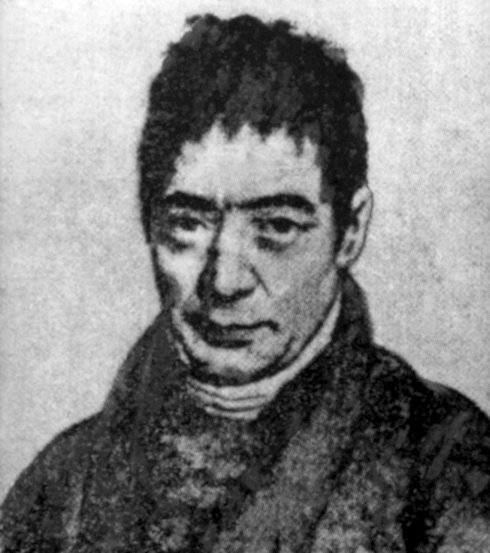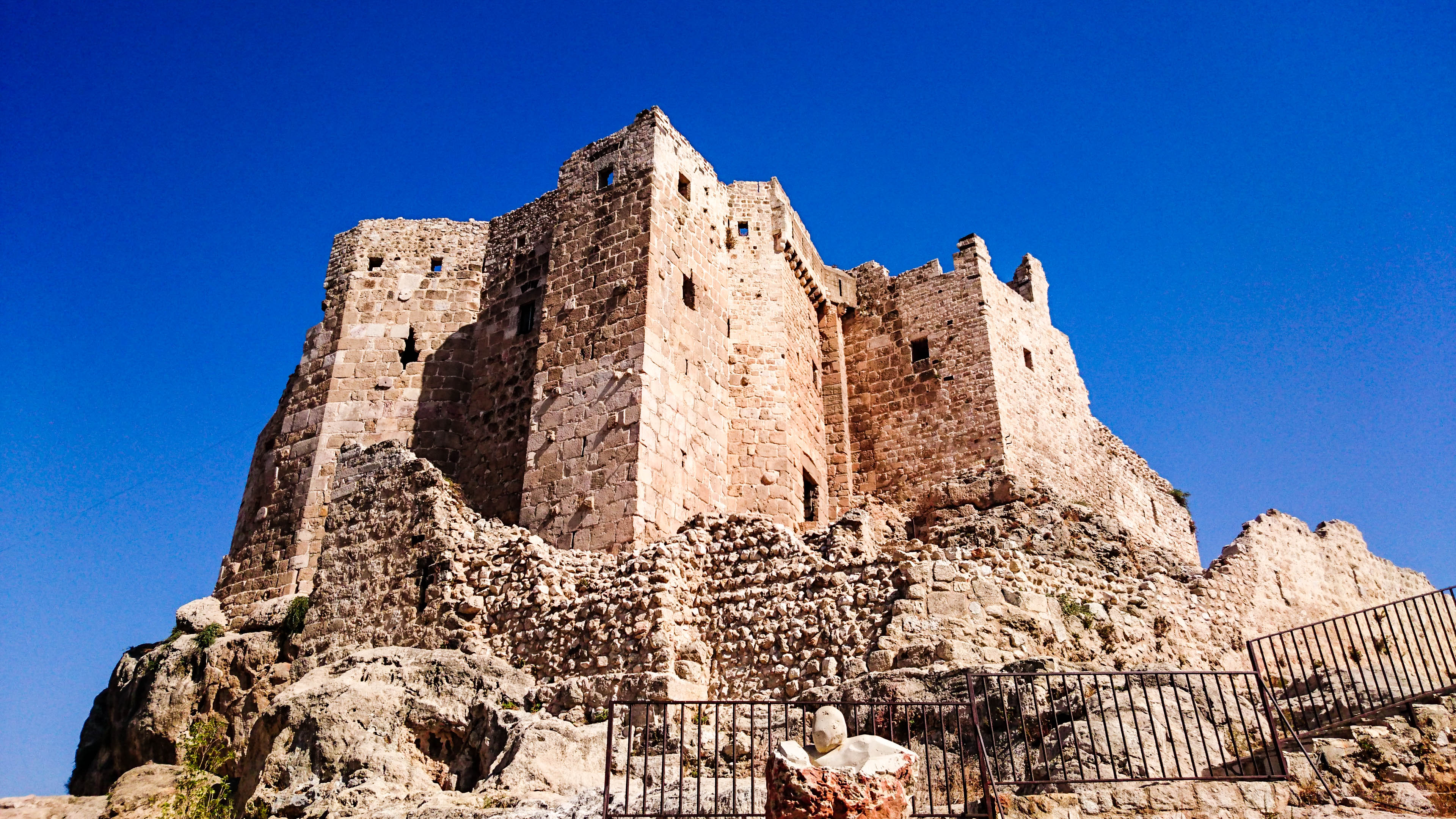|
Ibn Al-Adim
Kamāl al-Dīn Abū ʾl-Ḳāsim ʿUmar ibn Aḥmad ibn Hibat Allāh Ibn al-ʿAdīm (1192–1262; ) was an Arab biographer and historian from Aleppo. He is best known for his work ''Bughyat al-Talab fī Tārīkh Ḥalab'' (; ''Everything Desirable about the History of Aleppo''), a multi-volume collection of biographies of famous men from Aleppo, introduced with a volume on the geography and traditions of the region. It is saved in part in manuscripts in the library of sultan Ahmed III in Topkapi Palace. He also published a chronicle version of the work, ''Zubdat al-Halab fi ta'arikh Halab'' (; ''The Cream of the History of Aleppo''), a copy of which reached the library of Jean-Baptiste Colbert and then the Bibliothèque nationale de France, and selections of which were published with Latin translation by Georg Freytag in 1819. His historical sources are various, some oral and some written, and two of the more famous are Usama ibn Munqidh and Ibn al-Qalanisi (Lewis 1952). Another wo ... [...More Info...] [...Related Items...] OR: [Wikipedia] [Google] [Baidu] |
Aleppo
)), is an adjective which means "white-colored mixed with black". , motto = , image_map = , mapsize = , map_caption = , image_map1 = , mapsize1 = , map_caption1 = , pushpin_map = Syria#Mediterranean east#Asia#Syria Aleppo , pushpin_label_position = left , pushpin_relief = yes , pushpin_mapsize = , pushpin_map_caption = Location of Aleppo in Syria , coordinates = , subdivision_type = Country , subdivision_name = , subdivision_type1 = Governorate , subdivision_type2 = District , subdivision_type3 = Subdistrict , subdivision_name1 = Aleppo Governorate , subdivision_name2 = Mount Simeon (Jabal Semaan) , subdivision_name3 = Mount Simeon ... [...More Info...] [...Related Items...] OR: [Wikipedia] [Google] [Baidu] |
Ayyubid Dynasty
The Ayyubid dynasty ( ar, الأيوبيون '; ) was the founding dynasty of the medieval Sultanate of Egypt established by Saladin in 1171, following his abolition of the Fatimid Caliphate of Egypt. A Sunni Muslim of Kurdish origin, Saladin had originally served Nur ad-Din of Syria, leading Nur ad-Din's army in battle against the Crusaders in Fatimid Egypt, where he was made Vizier. Following Nur ad-Din's death, Saladin was proclaimed as the first Sultan of Egypt, and rapidly expanded the new sultanate beyond the frontiers of Egypt to encompass most of the Levant (including the former territories of Nur ad-Din), in addition to Hijaz, Yemen, northern Nubia, Tarabulus, Cyrenaica, southern Anatolia, and northern Iraq, the homeland of his Kurdish family. By virtue of his sultanate including Hijaz, the location of the Islamic holy cities of Mecca and Medina, he was the first ruler to be hailed as the Custodian of the Two Holy Mosques, a title that would be held by all subs ... [...More Info...] [...Related Items...] OR: [Wikipedia] [Google] [Baidu] |
13th-century Syrian Historians
The 13th century was the century which lasted from January 1, 1201 ( MCCI) through December 31, 1300 ( MCCC) in accordance with the Julian calendar. The Mongol Empire was founded by Genghis Khan, which stretched from Eastern Asia to Eastern Europe. The conquests of Hulagu Khan and other Mongol invasions changed the course of the Muslim world, most notably the Siege of Baghdad (1258), the destruction of the House of Wisdom and the weakening of the Mamluks and Rums which, according to historians, caused the decline of the Islamic Golden Age. Other Muslim powers such as the Mali Empire and Delhi Sultanate conquered large parts of West Africa and the Indian subcontinent, while Buddhism witnessed a decline through the conquest led by Bakhtiyar Khilji. The Southern Song dynasty would begin the century as a prosperous kingdom but would eventually be invaded and annexed into the Yuan dynasty of the Mongols. The Kamakura Shogunate of Japan would be invaded by the Mongols. Goryeo resiste ... [...More Info...] [...Related Items...] OR: [Wikipedia] [Google] [Baidu] |
13th-century Arabs
The 13th century was the century which lasted from January 1, 1201 ( MCCI) through December 31, 1300 ( MCCC) in accordance with the Julian calendar. The Mongol Empire was founded by Genghis Khan, which stretched from Eastern Asia to Eastern Europe. The conquests of Hulagu Khan and other Mongol invasions changed the course of the Muslim world, most notably the Siege of Baghdad (1258), the destruction of the House of Wisdom and the weakening of the Mamluks and Rums which, according to historians, caused the decline of the Islamic Golden Age. Other Muslim powers such as the Mali Empire and Delhi Sultanate conquered large parts of West Africa and the Indian subcontinent, while Buddhism witnessed a decline through the conquest led by Bakhtiyar Khilji. The Southern Song dynasty would begin the century as a prosperous kingdom but would eventually be invaded and annexed into the Yuan dynasty of the Mongols. The Kamakura Shogunate of Japan would be invaded by the Mongols. Goryeo resiste ... [...More Info...] [...Related Items...] OR: [Wikipedia] [Google] [Baidu] |
1262 Deaths
1 (one, unit, unity) is a number representing a single or the only entity. 1 is also a numerical digit and represents a single unit of counting or measurement. For example, a line segment of ''unit length'' is a line segment of length 1. In conventions of sign where zero is considered neither positive nor negative, 1 is the first and smallest positive integer. It is also sometimes considered the first of the infinite sequence of natural numbers, followed by 2, although by other definitions 1 is the second natural number, following 0. The fundamental mathematical property of 1 is to be a multiplicative identity, meaning that any number multiplied by 1 equals the same number. Most if not all properties of 1 can be deduced from this. In advanced mathematics, a multiplicative identity is often denoted 1, even if it is not a number. 1 is by convention not considered a prime number; this was not universally accepted until the mid-20th century. Additionally, 1 is the s ... [...More Info...] [...Related Items...] OR: [Wikipedia] [Google] [Baidu] |
1192 Births
119 may refer to: * 119 (number), a natural number * 119 (emergency telephone number) * AD 119, a year in the 2nd century AD * 119 BC, a year in the 2nd century BC * 119 (album), 2012 * 119 (NCT song) *119 (Show Me the Money song) * 119 (film), a Japanese film, see Naoto Takenaka#Film * 119 (MBTA bus) * List of highways numbered 119 See also * 11/9 (other) 11/9 may refer to: * November 9, US and Asian style date *** Fahrenheit 11/9, an American documentary film * September 11, used in European style date ** The September 11 attacks, a series of four coordinated terrorist attacks in the United States ... * 911 (other) * Ununennium, a hypothetical chemical element with atomic number 119 * {{Number disambiguation ... [...More Info...] [...Related Items...] OR: [Wikipedia] [Google] [Baidu] |
People From Aleppo
A person ( : people) is a being that has certain capacities or attributes such as reason, morality, consciousness or self-consciousness, and being a part of a culturally established form of social relations such as kinship, ownership of property, or legal responsibility. The defining features of personhood and, consequently, what makes a person count as a person, differ widely among cultures and contexts. In addition to the question of personhood, of what makes a being count as a person to begin with, there are further questions about personal identity and self: both about what makes any particular person that particular person instead of another, and about what makes a person at one time the same person as they were or will be at another time despite any intervening changes. The plural form "people" is often used to refer to an entire nation or ethnic group (as in "a people"), and this was the original meaning of the word; it subsequently acquired its use as a plural form ... [...More Info...] [...Related Items...] OR: [Wikipedia] [Google] [Baidu] |
Bernard Lewis
Bernard Lewis, (31 May 1916 – 19 May 2018) was a British American historian specialized in Oriental studies. He was also known as a public intellectual and political commentator. Lewis was the Cleveland E. Dodge Professor Emeritus of Near Eastern Studies at Princeton University. Lewis's expertise was in the history of Islam and the interaction between Islam and the West. Lewis served as a soldier in the British Army in the Royal Armoured Corps and Intelligence Corps during the Second World War before being seconded to the Foreign Office. After the war, he returned to the School of Oriental and African Studies at the University of London and was appointed to the new chair in Near and Middle Eastern history. In 2007 Lewis was called "the West's leading interpreter of the Middle East". Others have argued Lewis's approach is essentialist and generalizing to the Muslim world, as well as his tendency to restate hypotheses that were challenged by more recent research. ... [...More Info...] [...Related Items...] OR: [Wikipedia] [Google] [Baidu] |
Silvester De Sacy
Antoine Isaac, Baron Silvestre de Sacy (; 21 September 175821 February 1838), was a French nobleman, linguist and orientalist. His son, Ustazade Silvestre de Sacy, became a journalist. Life and works Early life Silvestre de Sacy was born in Paris to a notary named Jacques Abraham Silvestre, a Jansenist. He was born into an ardently Catholic bourgeois family. The surname extension of "de Sacy" was added by the younger son after the name of Louis-Isaac Lemaistre de Sacy, a famous Jansenist cleric who lived in the 17th century. Sacy's father died when he was seven years old, and he was educated on his own by his mother. Philological studies In 1781 he was appointed councillor in the '' cour des monnaies'', and was promoted in 1791 to be a commissary-general in the same department. Having successively studied Semitic languages, he began to make a name as an orientalist, and between 1787 and 1791 deciphered the Pahlavi inscriptions of the Sassanid kings. In 1792 he retired from pu ... [...More Info...] [...Related Items...] OR: [Wikipedia] [Google] [Baidu] |
Ahmed III
Ahmed III ( ota, احمد ثالث, ''Aḥmed-i sālis'') was Sultan of the Ottoman Empire and a son of Sultan Mehmed IV (r. 1648–1687). His mother was Gülnuş Sultan, originally named Evmania Voria, who was an ethnic Greek. He was born at Hacıoğlu Pazarcık, in Dobruja. He succeeded to the throne in 1703 on the abdication of his brother Mustafa II (1695–1703). Nevşehirli Damat İbrahim Pasha and the Sultan's daughter, Fatma Sultan (wife of the former) directed the government from 1718 to 1730, a period referred to as the ''Tulip Era''. The first days of Ahmed III's reign passed with efforts to appease the janissaries who were completely disciplined. However, he was not effective against the janissaries who made him sultan. Çorlulu Ali Pasha, who Ahmed brought to the Grand Vizier, tried to help him in administrative matters, made new arrangements for the treasury and Sultan. He supported Ahmed in his fight with his rivals. Early life and education Sultan Ahmed ... [...More Info...] [...Related Items...] OR: [Wikipedia] [Google] [Baidu] |
Order Of Assassins
The Order of Assassins or simply the Assassins ( fa, حَشّاشین, Ḥaššāšīn, ) were a Nizārī Ismāʿīlī order and sect of Shīʿa Islam that existed between 1090 and 1275 CE. During that time, they lived in the mountains of Persia and in Syria, and held a strict subterfuge policy throughout the Middle East through the covert murder of Muslim and Christian leaders who were considered enemies of the Nizārī Ismāʿīlī State. The modern term assassination is believed to stem from the tactics used by the Assassins. Nizārī Ismāʿīlīsm formed in the late 11th century after a succession crisis within the Fatimid Caliphate between Nizār ibn al-Mustanṣir and his half-brother, caliph al-Musta‘lī. Contemporaneous historians include Arabs ibn al-Qalanisi and Ali ibn al-Athir, and the Persian Ata-Malik Juvayni. The first two referred to the Assassins as ''batiniyya'', an epithet widely accepted by Ismāʿīlīs themselves. Overview The Nizari I ... [...More Info...] [...Related Items...] OR: [Wikipedia] [Google] [Baidu] |
Ibn Al-Qalanisi
Abū Yaʿlā Ḥamzah ibn al-Asad ibn al-Qalānisī ( ar, ابو يعلى حمزة ابن الاسد ابن القلانسي; c. 1071 – 18 March 1160) was an Arab politician and chronicler in 12th-century Damascus. Biography Abu Ya‘la ('father of Ya‘la'), whose surname was al-Qalanisi ('the Hatter'), descended from the Banu Tamim tribe, and was among the well-educated nobility of the city of Damascus.Gibb (1932), p. 8, citing Ibn 'Asakir. He studied literature, theology, and law, and served firstly as a secretary in, and later the head of, the chancery of Damascus (the ''Diwan al-Rasa'il''). He served twice as ''ra'is'' of the city, an office equivalent to mayor. "Chronicle of Damascus" His chronicle, the ''Dhail'' or ''Mudhayyal Ta'rikh Dimashq'' ('Continuation of the Chronicle of Damascus') was an extension of the chronicle of Hilal bin al-Muhassin al-Sabi', covering the years 1056 to al-Qalanisi's death in 1160.Gibb (1932), "Introduction", pp. 7-14. This chronicle is o ... [...More Info...] [...Related Items...] OR: [Wikipedia] [Google] [Baidu] |




_1938.jpg)



